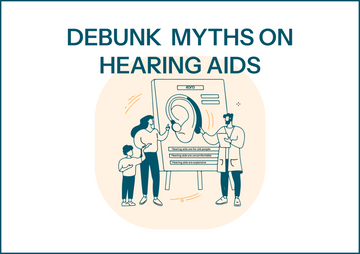In today’s fast-paced world, we often prioritize what we can see and feel, like annual physical check-ups and dental visits. However, one critical health aspect that frequently goes unnoticed is our hearing. Just as we monitor our vision and overall well-being, regular hearing assessments are vital for maintaining a healthy lifestyle. In this article, we’ll explore the significance of hearing assessments and how they contribute not only to better hearing but also to improved quality of life.
Understanding Hearing Assessments
A hearing assessment is a comprehensive evaluation of a person's hearing ability conducted by a hearing care professional. This assessment typically includes a series of tests that measure a person's ability to detect sounds, understand speech, and differentiate various pitches and tones.
What’s Involved in a Hearing Assessment?
A standard hearing assessment may include:
- Pure Tone Audiometry: This test measures the faintest tones a person can hear at different frequencies.
- Speech Audiometry: In this phase, a hearing care professional assesses how well the individual can hear and repeat words.
- Tympanometry: This test evaluates the functioning of the middle ear, checking for any abnormalities.
- Additional Tests: Depending on individual history and requirements, more specialized tests may be performed.
The Importance of Regular Hearing Assessments
Identifying Hearing Loss Early
One of the primary benefits of regular hearing assessments is the early identification of hearing loss. Many individuals may not realize they are experiencing hearing difficulties until it becomes severe. A hearing impairment can lead to communication barriers, social isolation, and even mental health challenges.
By conducting regular assessments, like those offered by Eara, it becomes easier to detect subtle changes in hearing ability, allowing for timely interventions. Early detection can prevent further deterioration and minimize the need for more extensive treatments later on.
Enhancing Quality of Life
Hearing is an essential component of our interactions and experiences. Effective communication fosters connections with friends, family, and coworkers. Poor hearing can lead to misunderstandings, embarrassment, and frustration, which may affect relationships and overall happiness.
Wearing a hearing aid, such as a Bluetooth hearing aid or a rechargeable hearing aid, once a hearing loss is identified can significantly enhance communication and social interactions. This improvement in communication not only boosts self-esteem but encourages individuals to engage actively with their surroundings.
The Consequences of Ignoring Regular Assessments
Invisible Health Risks
Ignoring the signs of hearing loss can lead to a range of health problems. Research has shown a connection between untreated hearing loss and cognitive decline. Without regular assessments, individuals may miss out on essential early signs of impairment. Addressing these issues promptly can help maintain cognitive function and overall health.
Increased Isolation and Loneliness
Individuals with undiagnosed hearing loss may withdraw from social situations to avoid the difficulties that come with poor hearing. This withdrawal can create a cycle of loneliness and isolation that impacts mental health. By attending regular hearing assessments, individuals can not only assess their hearing health but gain insights on how to stay socially active and engaged.
Who Should Get Regular Hearing Assessments?
Hearing assessments are beneficial for everyone, regardless of age. However, certain groups may require more frequent evaluations:
- Children: Early detection of hearing issues in children is crucial for language and speech development.
- Older Adults: As age-related hearing loss is common, seniors should consider regular evaluations.
- Individuals with High-Risk Jobs: Those working in loud environments should schedule assessments to protect their hearing.
- People with a Family History of Hearing Loss: If hearing loss runs in the family, regular check-ups are recommended.
How to Prepare for Your Hearing Assessment
Steps to Take Before Your Test
Preparation can help ensure accurate test results and a smooth appointment. Here are steps to follow:
- Document Symptoms: Note any hearing difficulties, ringing in the ears, or situations where hearing poses challenges.
- List Medications: Bring a list of medications you are currently taking as some drugs may affect hearing.
- Bring a Support Person: It may be helpful to have someone accompany you, especially if you experience significant hearing difficulties.
During the Assessment
On the day of the assessment, arrive a few minutes early to fill out any necessary paperwork. Stay relaxed; the audiologist is there to help you understand your hearing health better. Ask questions and express any concerns you have during the appointment.
Embracing Solutions: Hearing Aids and Other Assistive Devices
Types of Hearing Aids
If your assessment indicates the need for further assistance, your hearing care professional may recommend a hearing aid. There are several options available:
- Bluetooth Hearing Aids: These modern devices connect seamlessly to smartphones and other devices, allowing for hands-free calling and easy adjustments.
- Rechargeable Hearing Aids: Forget about changing batteries. With rechargeable options, you can charge your hearing aids overnight for all-day power.
Additional Assistive Devices
In addition to hearing aids, various other assistive listening devices can enhance your hearing experience. These include:
- TV Ears: Special devices that amplify TV sound, making it easier to enjoy your favorite shows without raising the volume.
- Personal Amplifiers: Enhances sound in conversations or group settings, bridging the gap in situations where background noise is an issue.
Finding the Right Hearing Care Professional
Choosing the right audiologist or hearing care professional is critical for your hearing health journey. Consider the following points when seeking someone to help you:
- Credentials: Ensure they are licensed and certified to provide hearing assessments and care.
- Experience: Look for professionals with extensive experience in the field.
- Reviews: Read reviews and testimonials from past clients to gauge their satisfaction with the service.
Lifestyle Changes to Support Hearing Health
Protecting Your Hearing
Beyond regular assessments, adopting a few lifestyle changes can help protect your hearing:
- Avoid Loud Noises: Limit exposure to loud sounds or use ear protection when necessary.
- Manage Earwax: Regular cleaning and appointments with your audiologist can ensure earwax does not impede hearing.
- Maintain a Healthy Diet: Consuming a balanced diet rich in vitamins, particularly Vitamins C and E, can contribute to overall ear health.
Your Hearing Journey Begins Today!
The road to better hearing starts with awareness and proactive measures. Regular hearing assessments can unlock new opportunities for communication, connection, and overall well-being. By prioritizing your hearing health and embracing modern solutions such as Eara hearing aids, you can navigate life’s conversations more confidently.
Don’t wait until hearing issues impact your daily life. Schedule your hearing assessment today and take the first step towards a brighter, more connected future.

























